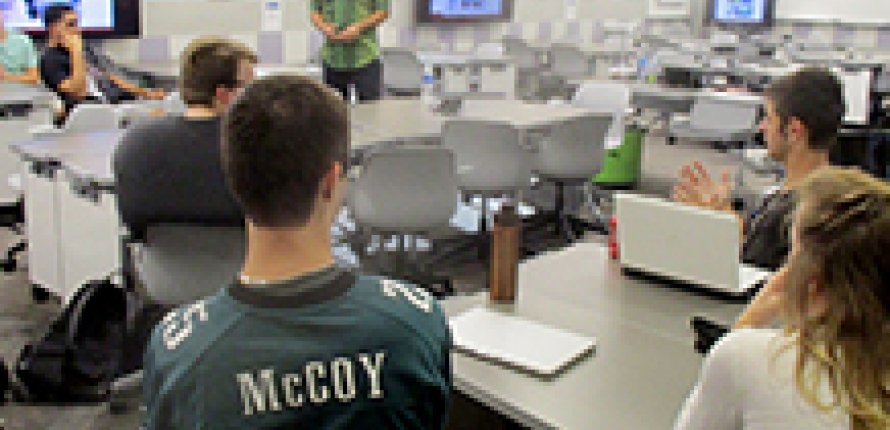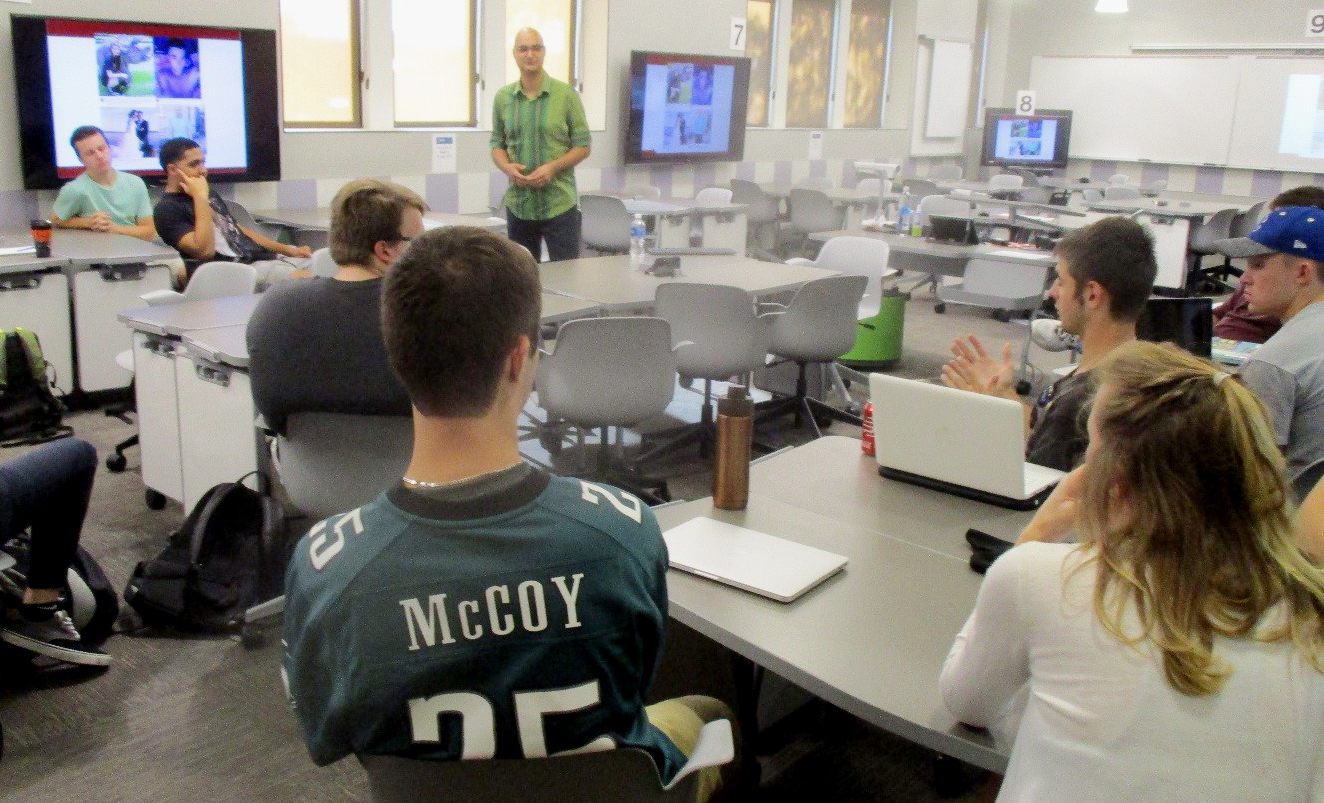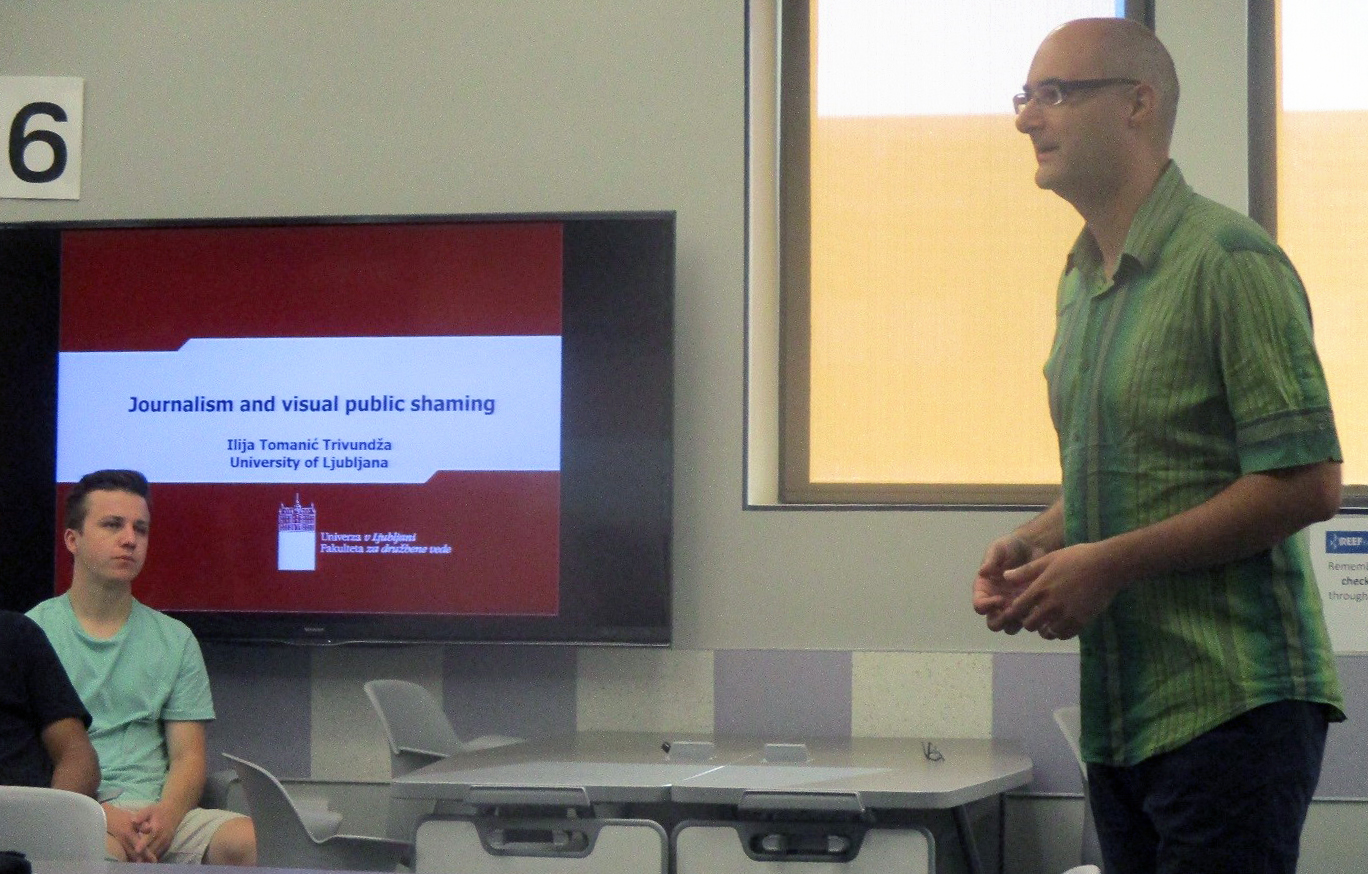The Student Becomes the Teacher

Dom Caristi, Professor of Telecommunications, Ball State University
1994-1995 Fulbright U.S. Scholar to Slovenia; 2008-2009 Fulbright U.S. Scholar to Greece
In 1995, my Fulbright award took me to Slovenia to teach U.S.-style journalism to a new country. Slovenia had become independent from Yugoslavia after a ten-day war in 1991, and a whole generation of journalists was learning to report free from government restrictions.
I invited my class of 80 students to stop by my office outside of class so we could get to know each other better one-on-one and, just like my American students, most of them never did. Those who did, though, were a great source of learning for me. This was one way in which the teacher became the student.
Ilija and Dragana were two of the students who came to the office, and we occasionally went to the cafeteria in the afternoon. I loved those cafeteria conversations and I missed them when I left. In those pre-Facebook days it was not as easy to maintain friendships overseas but thanks to email we managed, and in 2002 when I went to Italy to teach in a study abroad program, my wife and I spent a couple of weeks in Slovenia, including a trip to attend Ilija and Dragana’s wedding party.
I had the opportunity to return to Europe on subsequent teaching trips to Italy, and we would see each other either in Slovenia or Italy or both. Certainly social media has made it much easier to stay in touch.

The ultimate manifestation of the student becoming the teacher occurred last fall. Ilija is now a professor at the same University of Ljubljana where he had been my student. He came to the U.S. on a research visit and managed to arrange a stop at Ball State. He was able to speak to my senior-level Media Ethics class about a contemporary European controversy. He clearly explained the situation and actively engaged the students. Though I deserve no credit for the scholar Dr. Tomanić Trivundža has become, I could hardly refrain from smiling broadly as he taught the class.

Just as important as the time I spent in Slovenia has been my continued connections with my former students. Not all go on to be professors in my field, but they have done some wonderful things. I was able to serve as a member of a master’s thesis committee for one of the students in my class, who later hosted us in her home. I never would have expected that my Fulbright year in Slovenia might eventually connect me to people in Uganda, but one of those students who came by my office to chat founded an organization that uses tourism as a tool for economic and social development. Thanks to social media I continue to be in contact with him and follow the growth of his endeavor. I am flattered when he occasionally asks me for feedback about a brochure or video he has produced.
When I received a Fulbright to Greece in 2009, the students were already comfortable with social media, so it was much easier to connect with many of them than it had been in Slovenia 14 years earlier. I communicate with the students who are still in Greece, but also with members of the class who have emigrated to Belgium and the U.K. Through continued contact, I’m able to see my students’ accomplishments, and it has widened my understanding of the world – and my connectedness to it – beyond just the countries of my Fulbright award.
